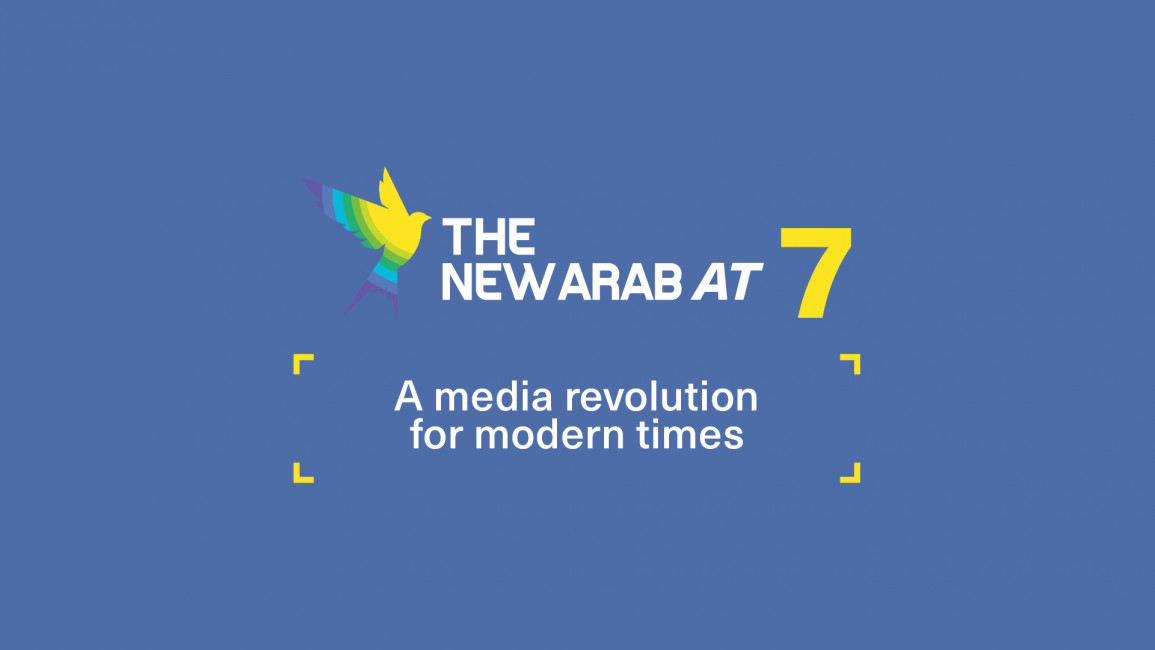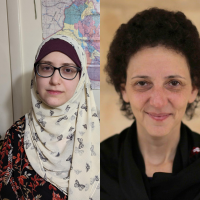
The New Arab at 7: The latest Arab media revolution... is the one you're reading
This article is one in a series to celebrate The New Arab's website relaunch. To read the others in the series click here.
If the birth of Arabic- and English-language satellite networks marked the most significant upheaval in the modern Arab mediascape since the era of political television and radio in the 1950s, nipping at its heels today is a new candidate for historic changes in how Arab audiences get their news and views.
This would be the current slow-motion explosion and steady expansion of independent online media over the last decade, which is now the best source of information on local transformations that drive national change across the region. This independent online media sphere is expanding steadily in Arabic, English, and French as the region experiences the tumultuous changes and occasional upheavals of the last decade.
Dozens of leading online newspapers, information portals, community journalism nodes, and magazines have sprung up in recent years, and it is here that The New Arab and its Arabic sister site, daily newspaper and TV station find their home. As The New Arab's English edition launches its new website this week, it's worth reflecting on the shape of this emerging media landscape.
Among their variety in approaches and offerings, the independent online media's common trait and main success driver is their focus on three related spheres: local issues that matter to people across social, economic, political and environmental arenas; in-depth investigations; and current political contestations in society, in day-to-day or even hour-to-hour reports in cases like the ongoing uprisings in some lands. Their coverage includes political dynamics broadly, but more specifically the conditions of marginalized communities, poverty, corruption, environmental degradation, racism, and urban-rural inequalities, among others.
While some seek to copy CNN and BBC in reporting mainstream news to attract commercial audiences and advertisers, these smaller and more nimble outlets reflect different aims and values: they combine hard-nosed original reporting with their determination to promote democratic national reconfigurations that allow ordinary citizens to know the facts and play a role in policy-making.
"Nipping at its heels today is a new candidate for historic changes in how Arab audiences get their news and views"
A key to these organisations' success has been their innovative and varied ways of delivering news and views, especially to tech-savvy young audiences. These include short videos, photo stories, live blogging, podcasts, in-depth investigative pieces, and even historical retrospectives looking at earlier days of protest, revolution, and transformation in these societies.
Many follow these outlets on social media to stay abreast of the latest developments in national uprisings and attempts to reform corrupted and failing governance systems. The dangers of disinformation that exist in mass social media, however, seem to be absent from these organisations that focus on public affairs, the conditions of people's lives, and the exercise – and abuse – of power. A common concern in all cases is that states' intelligence agencies can monitor citizens who follow or watch these media, which jeopardises their mission to help promote more democratic cultures.
"These youngsters see the residents are going to be kicked out of their houses. It's a red line for them, so they're here to show support" https://t.co/W6A22fFAqT
— The New Arab (@The_NewArab) May 18, 2021
Citizens are increasingly turning to the independent local and regional media to learn the details of why their economies, wellbeing, and future life prospects continue to decline steadily across much of the region – where 75% of families cannot afford to meet their monthly basic needs, according to UN and reputable regional surveys.
So while established national newspapers offer hand-picked and incomplete official statistics about poverty or land degradation, newer alternatives publish original reports they have conducted on such sensitive topics that people want to know about, including coverage of marginalized and vulnerable communities, such as refugees or foreign domestic workers.
The rapid growth of these media companies has irked most state authorities who refuse to license them, regularly intimidate and detain their journalists, and occasionally shut them down for short periods. The determined ones persevere and keep publishing, even after they are denied media licenses by their governments and operate as NGOs or even limited companies.
One of their major common achievements in several countries has been the establishment of independent alternative journalism associations to counter the ineffective old ones that are totally dominated by the state or sectarian parties.
" Their perseverance and continued expansion are critical, though, for any hopes of transitions to more democratic governance in Arab countries"
These media organisations have proved to be remarkably durable in the face of their financial vulnerability and the inhospitable official environments where they operate. Their perseverance and continued expansion are critical, though, for any hopes of transitions to more democratic governance in Arab countries, because of the unique role they play in informing the public about important issues, such as corruption, labour issues, and environmental conditions.
For now, they provide the most sophisticated form of public political accountability in Arab countries, alongside more fleeting messages in social media that suffer from being dominated by fake news and organised propaganda campaigns. The missing link remains how to move from channelling factual information from the independent online media into credible new decision-making systems based on pluralistic participation and accountability.
Rami G. Khouri is Director of Global Engagement and senior public policy fellow at the American University of Beirut, and a non-resident senior fellow at the Harvard Kennedy School's Middle East Initiative.
Follow him on Twitter: @ramikhouri
Have questions or comments? Email us at editorial-english@alaraby.co.uk
Opinions expressed in this article remain those of the author and do not necessarily represent those of The New Arab, its editorial board or staff.




